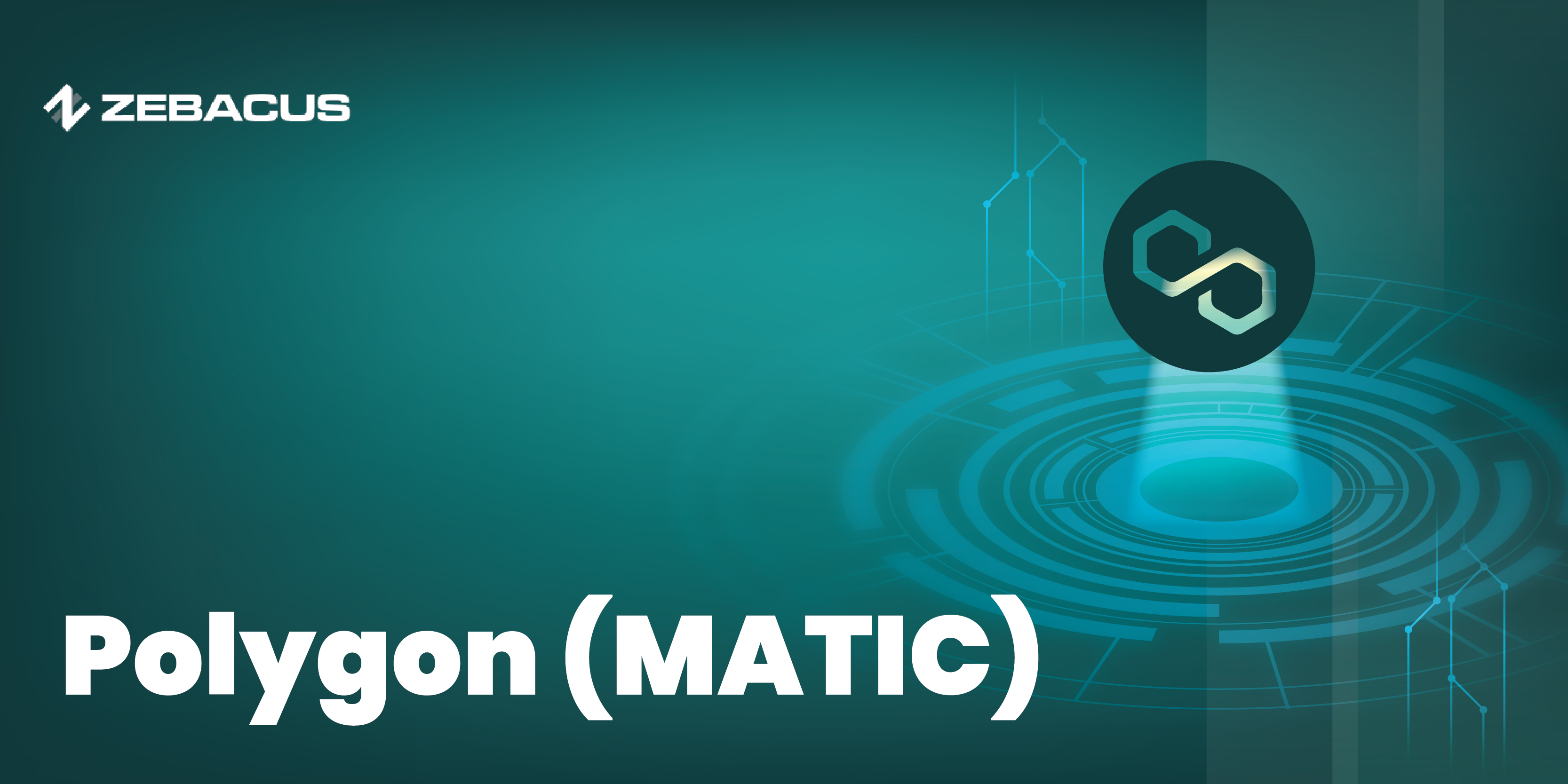What is Polygon (MATIC)?
Polygon blockchain is often dubbed the 'Internet of Blockchains' and the native cryptocurrency of the platform is called MATIC. If you have come across this cryptocurrency but aren't quite sure what it is, you're in the right place. In this article, I will explain the basics of its blockchain, its history, key features, and how is important in the broader crypto space. Let's dive into the Polygon network and see what makes it tick.
Basics of Polygon (MATIC)
Polygon connects multiple blockchain networks, allowing them to seamlessly interact with one another. This interoperability transforms how decentralized applications (dApps) operate, creating a more cohesive and efficient blockchain ecosystem. Polygon is often described as a Layer 2 solution for Ethereum. This means that the Polygon network works on top of the Ethereum blockchain to enhance its performance. Think of it as an addon that makes Ethereum faster, cheaper, and more efficient.
History of Polygon (MATIC)
Polygon was originally launched in 2017 as Matic Network before rebranding to Polygon in early 2021. The platform was co-founded by Jaynti Kanani, Sandeep Nailwal, and Anurag Arjun. Matic was designed to solve some of the most pressing issues facing the Ethereum blockchain, including scalability challenges. It also aimed to be a more user-friendly blockchain ecosystem.
How Polygon Works
Polygon offers a framework for creating and linking Ethereum-compatible blockchains. The platform uses several technologies to do this.
Plasma Chains: Plasma is a framework proposed by Joseph Poon and Ethereum co-founder Vitalik Buterin. Plasma chains are smaller chains that run alongside the main Ethereum chain. They can process transactions faster and more cheaply before finalizing them on the Ethereum mainnet. This reduces the load on Ethereum and enhances scalability.
Proof-of-Stake (PoS): Polygon uses a Proof-of-Stake consensus mechanism, where validators (nodes) are selected to confirm transactions based on the number of MATIC tokens they hold and are willing to lock up (stake) as collateral. This method is more energy-efficient than Bitcoin's Proof-of-Work consensus and ensures that the network remains secure and decentralized.
Polygon SDK: The Polygon Software Development Kit (SDK) is a modular framework for building custom blockchain networks. It allows developers to create their own scalable and interoperable blockchain solutions tailored to their specific needs. This flexibility is crucial for the adoption of blockchain technology across different industries.
Optimistic- and zk-Rollups: These two are the popular Layer 2 scaling solutions of Ethereum. Optimistic Rollups assume the transactions are valid and only check them if there's a challenge, while zk-Rollups use cryptographic proofs to verify transactions off-chain. Both methods significantly enhance throughput and reduce costs.
Merits of Polygon
Scalability: The most notable advantage of Polygon is its ability to scale. By processing transactions off the Ethereum mainnet and finalizing them later, Polygon can handle thousands of transactions per second, compared to Ethereum's 15-30 transactions per second.
Lower Fees: Transaction fees on Polygon are manifold cheaper than that on Ethereum. This reduction in fees is crucial for applications that require microtransactions, such as gaming and DeFi platforms.
Compatibility: Polygon is fully compatible with Ethereum, meaning developers can easily port their existing Ethereum-based dApps to Polygon with minimal adjustments. This compatibility also means users can enjoy the benefits of Polygon without leaving the Ethereum ecosystem.
Security: By leveraging the security of the Ethereum mainnet, Polygon ensures that its transactions are secure and reliable. The PoS mechanism and the use of plasma chains also contribute to a robust and reliable network.
Use Cases of Polygon
Polygon's versatility has led to a wide range of use cases. Here are a few examples:
DeFi: Decentralized finance platforms benefit immensely from Polygon's scalability and low fees. Popular DeFi applications like Aave, SushiSwap, and Curve Finance have integrated with Polygon to offer faster and cheaper transactions to users.
Gaming: Blockchain gaming requires high transaction throughput and low fees to provide a seamless user experience. Polygon's scalability makes it an ideal platform for games like Decentraland and Aavegotchi, where frequent, low-cost transactions are essential.
NFTs: Non-fungible tokens (NFTs) have taken the digital world by storm, but the high gas fees on Ethereum can be a barrier to entry. Polygon's low fees and fast transactions make it an attractive option for NFT marketplaces and creators.
Enterprise Solutions: Businesses looking to integrate blockchain into their operations can use Polygon to create custom blockchain networks that suit their specific needs. This can be particularly useful in supply chain management, where transparency and efficiency are crucial.
Concluding Thoughts
Polygon has shown remarkable growth and adoption since its inception. Its focus on solving Ethereum's scalability issues holds good ground. This will likely pay off significantly in the future when the demand for blockchain technology continues to go up. The team behind Polygon is continuously working on improving the platform and expanding its ecosystem.
One of the exciting developments on the horizon is the introduction of Polygon 2.0. This upgrade aims to enhance the existing infrastructure and introduce new features that will further increase scalability, security, and interoperability. Additionally, Polygon is exploring integration with other blockchain networks, which could open up new possibilities for cross-chain applications and services.








